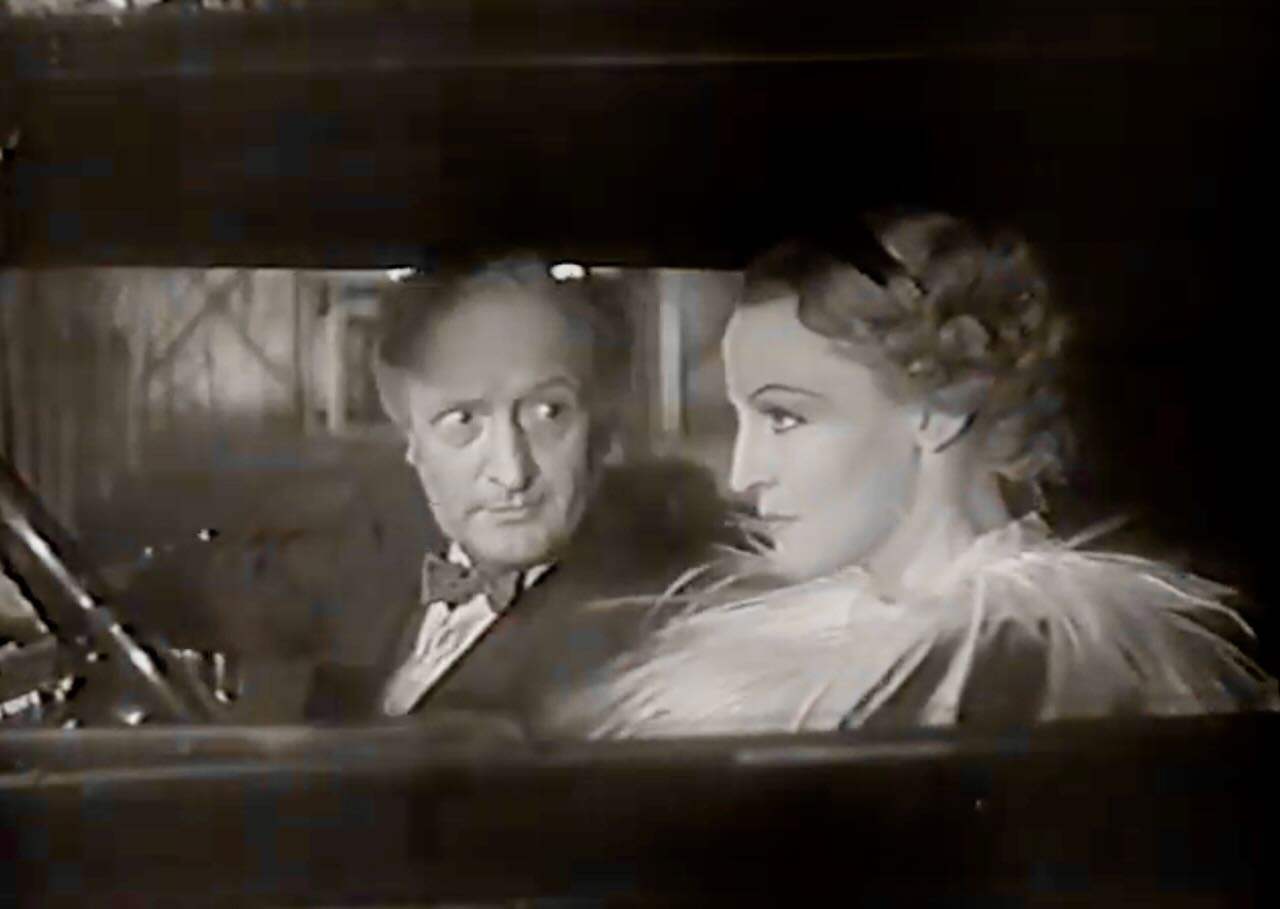As mentioned previously, in “Impossible Voyages” I’m watching and writing about a run of new (to me) science fiction films to be watched over this year (and possibly beyond). You can read the rationale and ground rules here. In the meantime, we are advancing from 1923 to 1934 with this movie, #12 in this series.
It’s been nearly six months since the last entry in this series, which just means that the “possibly beyond” language is soon going to soon need amending to “definitely beyond” or something like that. I actually started watching Gold all the way back then, and only finished it just the other day. I can’t really blame the movie–it’s pretty impressive in a lot of ways, but just turned out to be something I could be pretty easily distracted from.
Spoilers Ahead
Gold (1934)
Directed by Karl Hartl

The Story: Werner Holk works with brilliant scientist Professor Achenbach to develop a method for turning lead to gold, but just before it’s sabotaged before it can be properly tested and Achenbach is killed. Hold is hired by British industrialist John Wills to recreate Achenbach’s work, but Holk knows that that Wills is responsible for the sabotage, so he agrees to the work in order to get his revenge. Holk is able to finish the work and turn lead into gold, but as Wills prepares to mass produce the precious metal (in the midst of global controversy over the move), Holk sabotages his machine, causing it to self destruct. An enraged Wills refuses to protect himself, and even attempts to destroy safety mechanisms which will mean the machine’s destruction will kill all of his workers, but Holk is able to save them. In the end, Holk keeps the fact that he succeeded in turning lead into a gold a secret.
Starring: Hans Albers as Werner Holk, Michael Bohnen as John Wills, and Brigitte Helm as Wills’ estranged daughter Florence who becomes smitten with Holly. Lien Deyers plays Margit Moller (Holk’s fiancée or wife, I had a hard time telling which, and sources vary), Ernst Karchow as Willi Luders (an ally of Holk’s) and Friedrich Kayßler as Professor Achenbach. Eberhard Leithoff plays an engineer who works for Wills that Holk must contend with, and Willi Schur plays a worker who ends up helping him.

Comments: The science fiction elements of Gold are pretty tame, compared to other entries in this series. Nobody flies to space, nobody travels to the future, nobody finds any dinosaurs. What they do do is turn lead into gold–pretty mild stuff, all things considered. But what stands out is how naturally it’s presented. Indeed, all of Gold is presented with a naturalistic style that feels very contemporary. Gold comes only five years after Woman in the Moon, and only seven after Metropolis, both also German science fiction films, but the differences amongst the many differences the most obvious to me is how the expressionism and theatricality have been replaced with very modern feeling dialogue and reaction shots.
To be clear, I’m no authority on German cinema, so perhaps my extremely small sample size is producing some misguided obvservations. It’s worth noting that the other two movies were both directed by the same person, and probably even more importantly, they were both silent. It’s possible that the inclusion of sound helps to steer Gold in different stylistic direction, but it’s also interesting to me that Gold doesn’t feel locked into static theatre-like stagings. Director Karl Hartl does a good job immersing me into the various set pieces, especially the two most notable–Achenbach’s impressive gold-making machine at the start

and Wills’ even more impressive gold-making machine at the end. Really, it is a sight to see.

At the heart of all this is the drama of Werner Holk, a man driven by the death of his friend and mentor who was killed on the eve of his greatest scientific triumph. This, ultimately, is what Gold is concerned with–Holk’s need to both vindicate and avenge Achenbach. Holk spends a lot of time talking about this, and actor Hans Albers (a big star at the time, I’m led to understand) does a good job with this, maintaining a brooding intensity over all of this interactions through the story.
Unfortunately, that story is just not very dynamic. I was fully expecting Holk’s life to be in danger at some point, with all of his subterfuge and the dicey situation of pretending to work for the man who he knows had his friend killed. But all of that comes to nothing. Holk banks on Wills’ greed to let give him unfettered access to the machine and it works. He plans to sabotage the machine, and he does. Everything he sets out to do just works (at least until the very end). Even the unexpected potential romance with Wills’ daughter Florence doesn’t amount to much of a complication–he recognises his vulnerability to her, so just stops seeing her.

The only moment that actually amounts to a dramatic choice on Holk’s part is when he decides to go ahead and prove Achenbach’s theories by successfully turning lead into gold. It briefly feels like the movie is going in an unexpected direction at this point. But that new direction turns out to just be a minor bump into the road–he’s still going to sabotage the machine, but just now in a way that is even more embarrassing for Wills than it would have been. It’s a move that does psychologically resonate with the character, but it’s not enough by itself to sustain interest.
It’s only at the very end that things go a bit awry for Holk, and that’s just because Wills descends into a kind of madness at the movie’s climax and purposely endangers the lives of all of his workers, in seems just to spite Holk. The whole thing is pretty impressive. The machine breaking down is realised with a series of spectacular special effects, and Holk’s desperation to save everybody is pretty gripping. I was quite surprised when Holk actually survived the experience–I thought for sure I was in for a heroic sacrifice.

Other than Hans Albers, the other most impressive performance in the movie comes from Brigitte Helm (known amongst other things for playing Maria in Metropolis). She’s Wills’ daughter Florence, and Helm does a good job showing her as a mixture of independent, entitled and lonely. Really, she transcends the script because even though Florence has a fair amount of screen time, she has almost no impact on the story, and the impact she has on Holk himself is kept strangely muted. It feels like it’s going to be significant, but it’s not. We don’t even see Florence at the end of the film, so we don’t get any sense of her reaction to her father’s death or Holk’s actions, or anything like that.
Gold, incidentally, was a movie that was made after the National Socialists took control over the German film industry. It doesn’t betray any particular sensibilities related to that political party, however, except maybe for the fact that the villain is supposed to be British. There was also a French version of the movie made in parallel with the German one, which also featured Brigitte Helm but I think recast everyone else.

So there is a lot to like about Gold, especially in its clear ability to dramatically deliver both its story and characters, but it’s let down by a lack of dramatic incident that makes the whole thing feel unfortunately slow.
News
Berita
News Flash
Blog
Technology
Sports
Sport
Football
Tips
Finance
Berita Terkini
Berita Terbaru
Berita Kekinian
News
Berita Terkini
Olahraga
Pasang Internet Myrepublic
Jasa Import China
Jasa Import Door to Door


